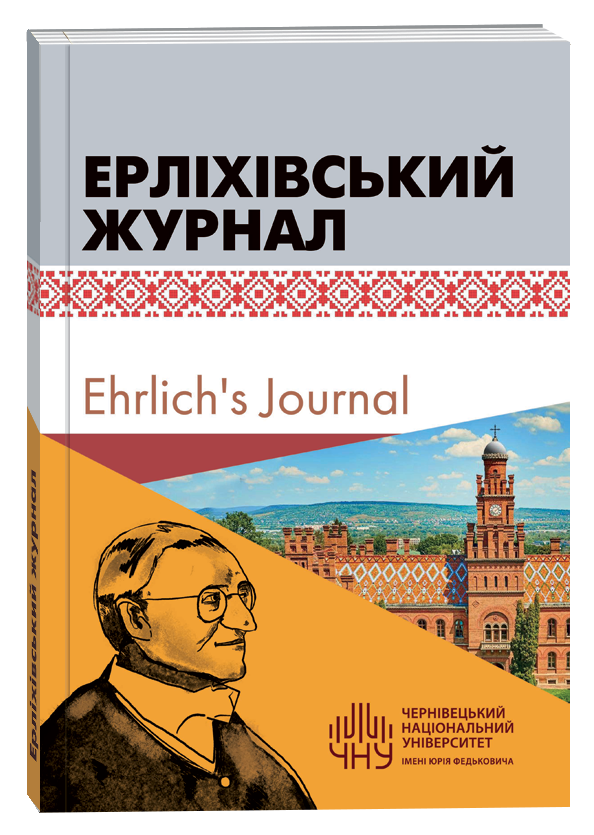ПРИНЦИП РОЗУМНОСТІ ЯК ЕФЕКТИВНИЙ СКЛАДНИК ЗАХИСТУ ПРАВ ЛЮДИНИ В ПУБЛІЧНО-ПРАВОВИХ ВІДНОСИНАХ ЗА ЗАКОНОДАВСТВОМ УКРАЇНИ ТА ІЗРАЇЛЮ
DOI:
https://doi.org/10.32782/ehrlichsjournal-2025-13.04Ключові слова:
Держава Ізраїль; Україна; принципи права; принципи адміністративного права; система загального права; континентальна система права; права людини; органи публічної влади; євроінтеграціяАнотація
Дослідження присвячене аналізу принципу розумності, його нормативного закріплення й застосування для врегулювання публічно-правових відносин в Україні та Ізраїлі. Автор проаналізував загальні й особливі риси цього принципу з урахуванням особливостей українського й ізраїльського законодавства, впливу систем загального права та континентального права на формування доктрини й практики його застосування як органами публічної влади, так і судами під час здійснення останніми судового контролю. Актуалізація вивчення розвитку й еволюції принципу розумності саме між цими країнами зумовлюється дією особливих правових режимів, під час яких допускається обмеження окремих прав людини, зміною публічного права, яка відбувається під час дії воєнного стану, а також необхідністю дослідження особливостей правових систем союзних українській державі країн на Близькому Сході. Забезпечення верховенства права у відносинах між приватною особою й органами публічної влади є одним із важливих завдань держави, яке виконується в тому числі за допомогою принципу розумності як складного та багатогранного явища. У статті окрему увагу приділено особливостям досліджуваного принципу під час вирішення публічно-правових спорів, сформованим судовою практикою підходам, завдяки яким його застосування є обов’язковою умовою перевірки оскаржуваних рішень органів публічної влади, що завершуються виданням нормативних та адміністративних актів тощо. Проаналізовано наукові публікації в царині адміністративного права України й Ізраїлю, у яких розкриваються окремі аспекти застосування принципу розумності, зокрема ті з них, які присвячені практиці його застосування під час вирішення публічно-правових спорів за участю органів виконавчої та законодавчої влади; окремим відносинам, які виникають між органами публічної влади та стосуються внесення змін до конституційного законодавства, яким обмежується можливість здійснення судового контролю Верховного Суду Ізраїлю; окремі публікації українських адміністративістів, котрі досліджують розумність у системі загальних і спеціальних принципів. Доведено, що принцип розумності є невід’ємним елементом, який посилює ефект дії механізму захисту прав людини у відносинах з органами публічної влади, відносинах між такими органами. З його допомогою здійснюється перевірка рішень, що приймаються в конкретних випадках на виконання функцій і повноважень згадуваними органами на предмет доцільності й раціональності. Ізраїльська правова система наділяє Верховний Суд повноваженнями здійснювати судовий контроль за рішеннями виконавчої та законодавчої влади, інших органів влади з метою недопущення порушення чинного механізму стримувань і противаг, що зумовлюється історичними особливостями формування системи органів влади, дією особливого правового режиму та впливу системи загального права. В Україні ж спостерігається тенденція вдосконалення адміністративного законодавства під впливом процесу євроінтеграції, що мало наслідком удосконалення окремих інститутів цієї галузі, упровадження новел адміністративного права, процесу та процедури, де принципи матимуть вагоме значення й впливатимуть на формування правозастосовної практики. Авторська позиція, сформульована у висновках, стосується відмінностей у законодавчому закріпленні принципу розумності, що зумовлено характеристиками правових систем країн загального та континентального права, які визначають особливості розуміння, інтерпретації й використання вказаного принципу в щоденній діяльності як органів публічної влади під час прийняття ними відповідних рішень, так і судових інституцій у частині розгляду публічно-правових спорів.
Посилання
Страшинський Б. Р. Принцип розумності в праві: теоретико-правові аспекти : дис. … докт. філос. : 081 «Право» (08 «Право»). Київ : Інститут держави і права ім. В. М. Корецького НАН України, 2022. 252 c.
Мандрікова К. О. Розумність у правовому регулюванні: вимоги до нормотворчості і правозастосування : дис. … канд. юрид. наук : 12.00.01 «Теорія та історія держави і права; історія політичних і правових учень». Харків : Національний юридичний університет імені Ярослава Мудрого, 2015. 196 с.
Dindjer H. What Makes an Administrative Decision Unreasonable? Modern Law Review. 2020. № 84(2). P. 1–32.
Vaughan v. Menlove Court of Common Pleas United Kingdom. Justia Law. URL: https://law.justia.com/cases/foreign/united-kingdom/132-eng-rep-490-1837.html (date of access: 07.06.2025).
Kennedy v The Charity Commission. The Supreme Court of the United Kingdom. URL: https://www.supremecourt.uk/cases/uksc-2012-0122#judgment-details (date of access: 07.06.2025).
Колпаков В. К., Курінний Є. В., Алімов К. О. Реалізація ідеї розумності в адміністративно-процесуальних правовідносинах. Юридичний науковий електронний журнал. 2024. № 10. С. 644–646.
Крайній П. І., Торончук І. Ж. Правове регулювання діяльності судів у Державі Ізраїль. Аналітично-порівняльне правознавство. 2025. № 2. P. 621–625.
Європейська комісія «За демократію через право» (Венеційська комісія) доповідь про правовладдя. Ухвалено Венеційською Комісією на її 86-му пленарному засіданні (Венеція, 25–26 березня 2011 року). URL: https://www.venice.coe.int/webforms/documents/default.aspx?pdffile=CDL-AD(2011)003rev2-ukr (date of access: 07.06.2025).
RECOMMENDATION № R (87) 16 OF THE COMMITTEE OF MINISTERS TO MEMBER STATES ON ADMINISTRATIVE PROCEDURES AFFECTING A LARGE NUMBER OF PERSONS (Adopted by the Committee of Ministers on 17 September 1987 at the 410th meeting of the Ministers’ Deputies). Https://rm.coe.int/16804eaa5c. URL: https://rm.coe.int/16804eaa5c (дата звернення: 08.07.2025).
Про адміністративну процедуру : Закон України від 17.02.2022 № 2073-IX : станом на 15 листоп. 2024 р. URL: https://zakon.rada.gov.ua/laws/show/2073-20#Text (дата звернення: 09.07.2025).
Постанова Верховного Суду у складі Касаційного адміністративного суду від 12.11.2024 у справі № 380/11916/22. URL: https://lpd.court.gov.ua/legal-position/11316/document/44361 (дата звернення: 09.07.2025).
Постанова Верховного Суду у складі Касаційного адміністративного суду від 30.04.2024 у справі № 440/3174/19. URL: https://lpd.court.gov.ua/legal-position/10352/document/43564 (дата звернення: 09.07.2025).
##submission.downloads##
Опубліковано
Як цитувати
Номер
Розділ
Ліцензія

Ця робота ліцензується відповідно до Creative Commons Attribution 4.0 International License.








